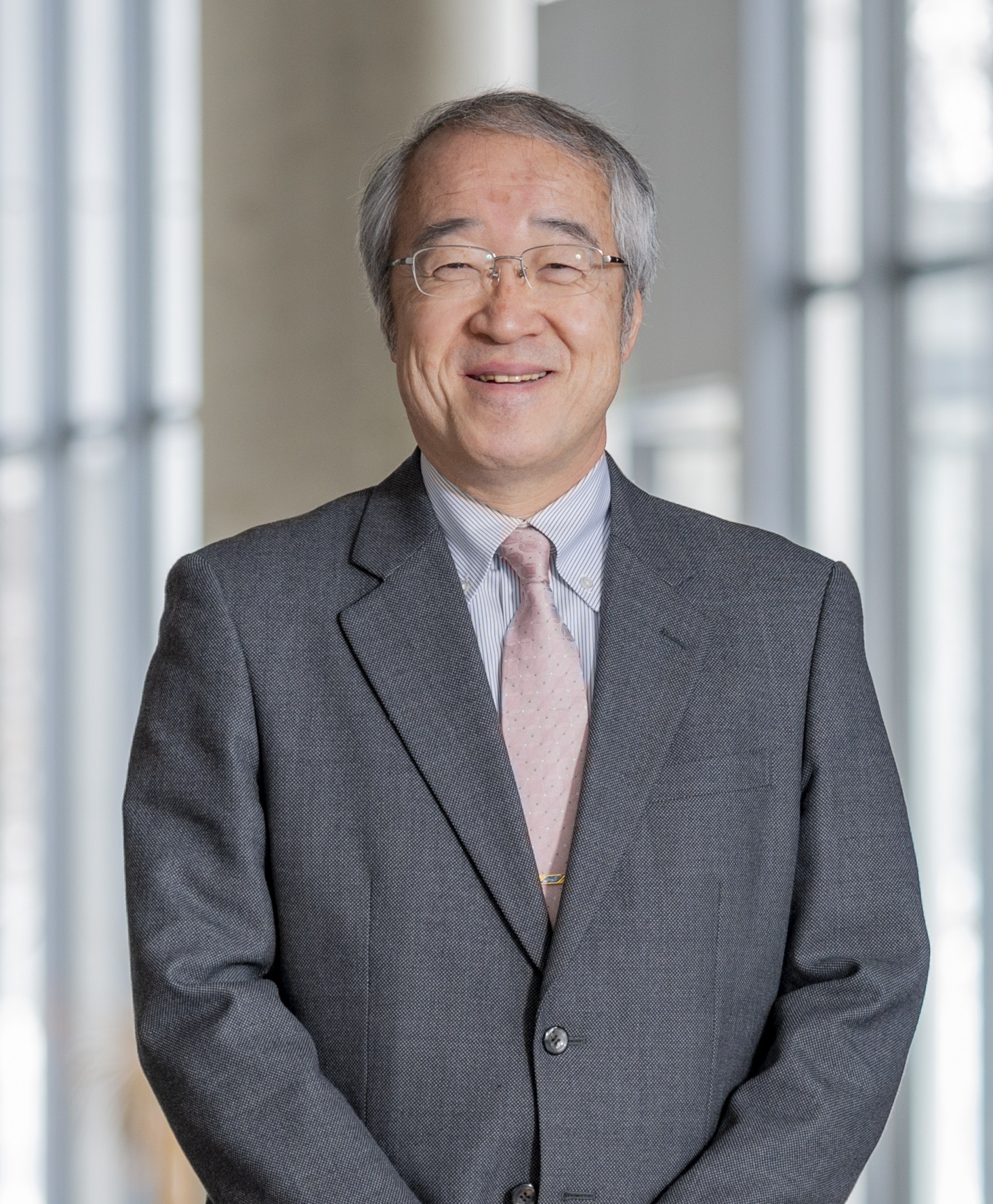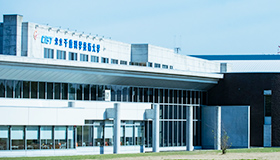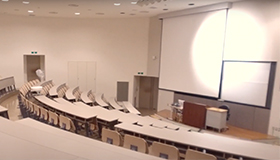Message from the Head Director/President
Cultivation of DX and GX Professionals Through Global Collaboration
Since becoming a public university in 2019, our institution has entered its seventh year. We have been steadily expanding the functions of both our undergraduate and graduate programs. As the first stage of this development, from academic year 2025, we will increase the enrollment capacity of our master's program (first half of the doctoral program) from 20 to 60 students. Within a single major, we have established two new specialized tracks: the DX (Digital Transformation) Course and the GX (Green Transformation) Course. These initiatives mark the beginning of a new structure for graduate education and research environments. A new facility to support these expanded functions is currently in the planning stages, and preparations for its construction are underway.
DX, or Digital Transformation, involves the streamlining and enhancement of various societal and industrial functions, including those of governments and corporations. In recent years, educational institutions from elementary schools to universities have also been strengthening curricula in information sciences related to DX. At the university level, particular emphasis is being placed on mathematical sciences, big data analysis, artificial intelligence (AI), and cutting-edge research that utilizes these technologies.
Meanwhile, GX, or Green Transformation, refers to the development of harmonized and interdisciplinary technologies aimed at building a sustainable society. These include environmental technologies, new energy systems, and low-power-consumption innovations. In regions such as Chitose City and across Hokkaido, rich in natural landscapes and resources, GX initiatives are being actively promoted.
Chitose and its surrounding areas are undergoing transformations beyond expectation. One major development is the establishment of Rapidus, a next-generation semiconductor company, near our university as part of a national project. This is not merely a manufacturing base for next-gen semiconductors—it is also attracting a wide array of related industries. In parallel, various efforts are being made to foster the next generation of talent. For example, the Ministry of Economy, Trade and Industry (METI) has launched the Hokkaido Semiconductor Human Resource Development Promotion Council, which highlights how expectations for higher education institutions are continuing to grow.
When our university transitioned to public status, we prioritized education and research through interdisciplinary collaboration. As part of this, we integrated the Ministry of Education, Culture, Sports, Science and Technology (MEXT)-certified program in Mathematical and Data Science and AI Education into the general curriculum of our School of Science and Technology. This ensures that all students learn these foundational subjects before specializing in fields such as applied chemistry, biology, electronic engineering, optical science, information science, or systems engineering. In March 2023, the first undergraduate students who completed this program graduated, and in March 2025, the first graduate students completed their studies.
The rapidly growing semiconductor industry around us is fully utilizing advanced information technologies, while simultaneously conducting research and development in areas such as materials science, device engineering, electronic engineering, system design, and functional integration systems. Across Hokkaido, efforts to create a rich and sustainable society are accelerating through the development and application of environmental and new energy technologies. Globally, we are seeing the widespread adoption of advanced technologies that support human life—including robotics, cyber-space technology aimed at digital twins, and automation through AI. In this context, our university’s mission of “education and research through interdisciplinary collaboration” is evolving into the cultivation of advanced DX and GX professionals through global collaboration.
We are actively enhancing our comprehensive educational and research partnerships with universities and research institutions abroad. This includes international joint research, as well as student exchange programs that send our students overseas and welcome students from partner institutions. We are committed to providing all students with opportunities to explore the broad field of advanced science and technology, helping them find research and development areas that match their interests, and supporting them in building careers on the global stage.
Through continuous improvement of our environment and incorporation of the latest developments, we are working toward the sustainable growth of both our university and the local community. We greatly appreciate and look forward to your continued support and cooperation.
Yoshikazu Miyanaga
President/CEO
Chitose Institute of Science and Technology
Background
Graduated from the Department of Electronic Engineering, School of Engineering, Hokkaido University
Earned a Ph.D. from the Graduate School of Engineering, Hokkaido University.
Information science, information communication networks, multimedia information processing




